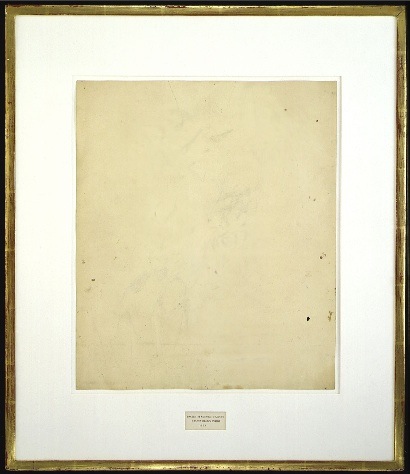|
Back to The Presentable Art of Reading Absence:
On page 4, Wright offers this passage: This instant becomes the smallest unit of meaning in the universe, an aberration that clarifies our contingency. Almost as quickly as this instant comes into focus, however, sounds of the outside—bird calls, miscellaneous sonorities—call his/our attention away until, on page 7, he/we return: There must be an inelastic attention to this moment or this flagged instant [...] that has suddenly appeared Throughout this poem, Wright slips into and out of the instant (see the last two posts for more on this notion of the "slip"). In this stanza on page 7, he gives the ambi-valent term "flagged instant," which might signify an instant that is marked, as though dyed to mark its travels through the universe, or it might signify the slowing of the instant, a flagging that comes from fatigue. Taken all together—the slipping instant, the marked instant, and the fatigued instant—I'm motivated once more to name the temporality that Wright conjures through his art of reading absence. Time itself appears as qualitative viscosity. Not a quantitative measure of friction, but, rather, an event of slipping away: the instant slips. There is no noun for time. It is verb. Time does. Again, it slips. The instant is the location of the slip's root. When one meditates or attempts to discipline thought's meandering, the possibility of planting the now presents itself. The instant, marking the place of the now's root system, shows us where to plant, but the act of planting requires a virtuosic performance of undoing the self. To understand this a bit more, I turn back to Wright: Such is peace, and such the motive and lie, and we have not yet arrived. One must learn not to pray [...] I resume: such is peace, and such is the inexact profession of a pilgrim proceeding toward the point of his own erasure. To plant the now means to erase oneself. This erasure will always contain traces of the labor, some detritus caught up in the flow of time, not unlike Rauschenberg's 1953 erasure of de Kooning's drawing.
0 Comments
Leave a Reply. |
AuthorWill Daddario is a historiographer, philosopher, and teacher. He currently lives in Asheville, North Carolina. Archives
June 2021
Categories |

 RSS Feed
RSS Feed
